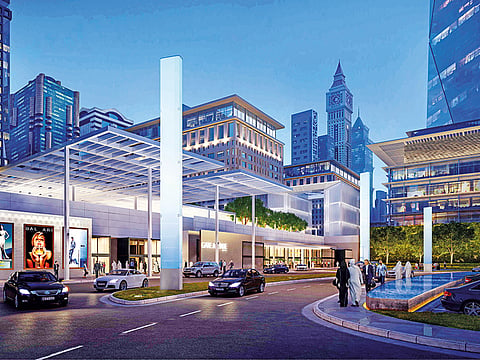UAE’s business optimism surges on improving economic fundamentals
Regional trade hub status makes the UAE less susceptible to trade war impact

Dubai: The vast majority of businesses in the UAE are optimistic on their outlook for the next one year thanks to the improving macro-economic environment of the country and the region, according to a survey of business by HSBC.
The study ‘Navigator: Now, next and how for business’ covered 8,500 companies in 34 markets around the world including the UAE.
Increasing oil prices, alongside the UAE’s recently announced stimulus packages, and the upcoming Expo 2020 have boosted business confidence, according to the study. Reflecting the optimism, 87 per cent of the UAE businesses are positive on their outlook for the year ahead, while a similar proportion (86 per centre) are positive about the global trading environment.
The study showed more than a third (34 per cent) of the UAE’s businesses are expanding into new markets to attract new customers and drive growth. “The report speaks a lot about the business confidence of UAE-based companies. The fact that many business are making capital expenditure is a clear sign they have a positive view of the future,” said Mike Davis, Head of Commercial Banking for HSBC UAE.
Economic growth in the UAE slowed to an eight-year low in 2017, against a backdrop of low oil prices and voluntary oil production cuts which came as part of the Opec-plus agreement to rebalance the global oil market. The economy, however, is expected to recover this year, supported by rising oil prices, an improving regional macroeconomic backdrop and higher public spending and investment ahead of Expo 2020.
of UAE businesses positive on outlook for the year ahead
Improving economic prospects in the MENA [Middle East and North Africa] region is also expected to benefit the UAE business as they plan to expand into some of the key regional economies such as Egypt and Saudi Arabia. Overall, 89 per cent of UAE firms are confident their company will succeed in the current trading environment, higher than the global average of 81 per cent.
The HSBC Navigator survey indicates that more than four out of five businesses (86 per cent) believe the outlook for international trade is positive, higher than the global average of 78 per cent. In the near term, about a third of the firms surveyed identify growing market share as a top priority, while an increasing focus on international markets was also commonly cited.
“While ties with India and China will continue to strengthen, we are also seeing an increasing number of businesses look to other parts of Asia, such as South East Asia, to expand into new markets,” said Davis.
Despite the uptick in UAE business sentiment, an increasing number (82 per cent) are also becoming aware of rising protectionism. While international expansion will continue to be a priority, the survey also highlights an increase in intra-regional trade — with Saudi Arabia, Egypt and Oman being top growth markets for the UAE.
Mike expects the strategic location of the UAE and the trade hub status of the UAE makes it less susceptible to global trade disputes. “The country is as much a hub for regional trade, as it is for international. As global issues that concern businesses evolve, it comes as no surprise that they would also look within the region for the right cross-border opportunities,” he said.
Sign up for the Daily Briefing
Get the latest news and updates straight to your inbox



